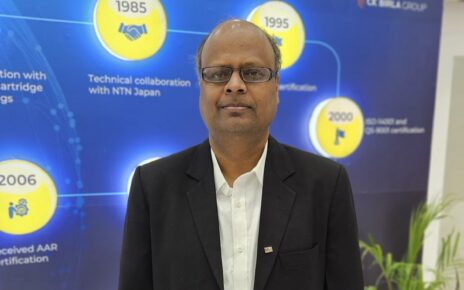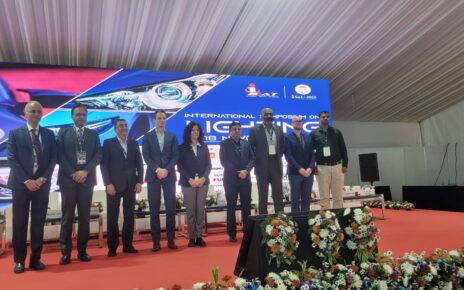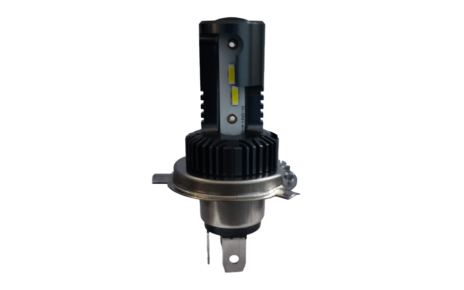
SKF actively collaborates with manufacturers to innovate bearing solutions for electric vehicles (EVs), addressing unique challenges and offering customized and hybrid bearings for enhanced reliability and efficiency. In a comprehensive interview with Rajesh Rajgor, Alagesan Thasari, Head and Director – Automotive Business and CTO – India, South East Asia, Australia and NZ; discusses the company’s pioneering contributions to the sustainable transformation in the automotive industry.
With your extensive experience and leadership in Research, Product Development, and Program Management, what do you consider the most promising trends or challenges in the automotive technology and engineering solutions industry for the coming years?
Globally, the automotive industry is experiencing enormous change, driven by environmental awareness and tough emissions legislation. Against the backdrop of these trends and opportunities, the industry is focused on transition to a low-carbon economy, leading to an increased demand for electric vehicles (EVs). This paves the way for new solutions for powertrain electrification, battery management, thermal management, noise reduction, and charging infrastructure.
Similarly, the advancement of digitalization and connectivity will enable new functionalities and services for vehicles, such as autonomous driving, vehicle-to-everything (V2X) communication, over-the-air (OTA) updates, predictive maintenance, and personalization. The emergence of new mobility models and customer expectations will challenge the traditional automotive value chain and business models, such as shared mobility, subscription-based ownership, circular economy, and customer-centricity.
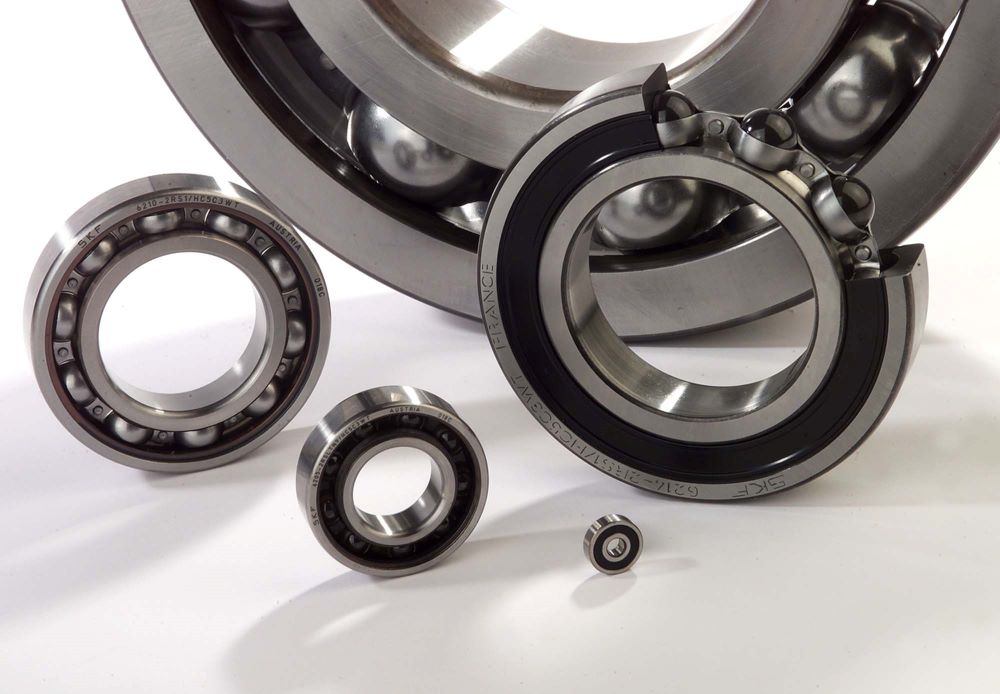
As a major supplier to the automotive industry, SKF has focused its product developments on several key areas, both for current and new vehicle platforms, with a vision to continue to reduce friction losses even more substantially and always at an affordable cost. For instance, we recently launched the Auto CO2 calculator tool, offering a significant advancement in environmental impact assessment. We will continue to work closely with our customers to catalyze innovation in the automotive industry.
Could you provide insights into SKF India’s latest innovations in the context of electric vehicles, specifically regarding bearing, seals and related solutions? How are these innovations contributing to the automotive industry’s sustainability goals?
At SKF, we aim to be a part of the sustainable transformation by enabling rotation for a better tomorrow. In the automotive industry, our solutions help manufacturers to achieve breakthroughs in friction reduction and energy efficiency and accelerate the shift to sustainable mobility.
We are working with manufacturers to address some of the challenges unique to EVs by redesigning the bearings and their components, such as the polymer cage, rolling components and by using special lubricating grease. In fact, customized and hybrid bearings are already solving some of the fundamental issues that can affect reliability in electric vehicles. Our team of application engineers work closely with customers to design high efficiency bearing solutions and arrangements in order to decrease overall system power losses, therefore maximizing EV range.
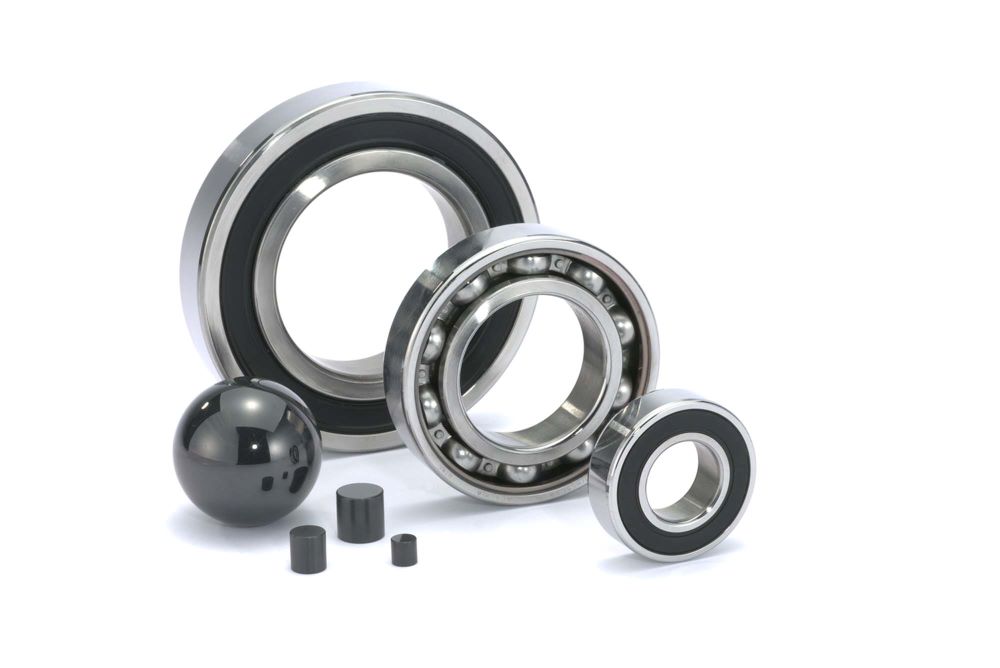
EV manufacturers also require supply chains and engineering capabilities that fit well with their manufacturing and product development footprint. SKF in India has adopted a full-value-chain approach by investing in product development, manufacturing and testing to target local EV markets.
As technology advances like range extension, battery longevity, charging technologies and available charging infrastructure begin to improve, we will continue to provide solutions that not only enhance the performance and reliability of critical components in EVs but also contribute to manufacturers’ sustainability goals.
SKF is known for its specialized bearings in various automotive applications such as powertrain, wheel-end, engine, suspension, and steering. Could you elaborate on some recent advancements or breakthroughs in these specialized bearing technologies that have enhanced performance or efficiency for vehicles?
SKF customizes bearings for a range of applications, including e-powertrain, wheel-end, drivelines, engine, suspension, and steering, catering to manufacturers across vehicle segments. Noteworthy specialized products for electric vehicles (EVs) encompass SKF’s hybrid Deep Groove Ball Bearings (DGBB), featuring ceramic rolling elements and steel rings. These DGBBs excel in high-speed performance and electrical insulation, making them a premium choice for high-performance EV powertrains, addressing concerns like current leakage and ensuring transmission protection. Additionally, SKF’s innovative ceramic ball bearings, designed for EV drivetrains, offer advantages such as reduced weight and increased rotational speed. The eDrive ball bearing range for electric and hybrid vehicle drivetrains brings multiple benefits, including lower friction, enhanced efficiency, power density, and improved battery reliability. Furthermore, SKF’s Low friction seals for eDrive are tailored to electric motor specifications, delivering robust sealing performance with lower friction losses and higher durability, capable of withstanding oil temperatures up to 140°C. As SKF looks forward, its commitment involves ongoing development of tools, products, and services to support the automotive industry in creating vehicles that contribute to a sustainable future.
The vehicle aftermarket is a crucial aspect of SKF’s business. Can you shed light on the strategies and principles that uphold SKF’s commitment to delivering high-quality aftermarket solutions to customers around the world? How does SKF maintain a global supply chain to ensure these standards?
Globally, the SKF vehicle aftermarket boasts a product range of over 20,000 variations with unmatched quality. In India, vehicle aftermarket deals with the aftermarket for cars, two wheelers, three wheelers and commercial vehicles. Through a network of more than 570 distributors, we supply the vehicle aftermarket with spare parts, including wheel end, engine, transmission, steering and suspension components plus the bearing, tooling and lubrication products to improve overall system reliability, safety and efficiency. Our strong manufacturing footprint combined with our distributor network enables us to be more responsive and closer to our customers and capitalize on emerging growth prospects to drive sustainable growth.
How is SKF positioning itself to address these trends and challenges and balancing its growth trajectory?
With trends like sustainability, electrification, digitalization, transforming industries, we believe innovation will be the key differentiator for success. We recently launched the Open Innovation initiative which aims to broaden the horizon of value creation, unlock hidden potential for innovation, and open the door to strategic partnerships, and new business models. Along with facilitating more scouting activities across India and Southeast Asia region, this initiative focuses on executing the best concepts through a series of testing and providing advanced technical knowledge for design, process, and supplier validation. Together, we can solve real-world challenges through collaboration and innovation.
Our focus on sustainability aligns with the automotive industry’s long-term goals, and our commitment to quality ensures year-on-year growth. We are striking a balance between addressing short-term industry trends and nurturing our medium to long-term revenue goals, thereby securing our position as a leader in automotive solutions. Today, SKF is well-positioned to leverage its expertise and global presence to promote future mobility and create greater environmental and economic benefits together with customers.


